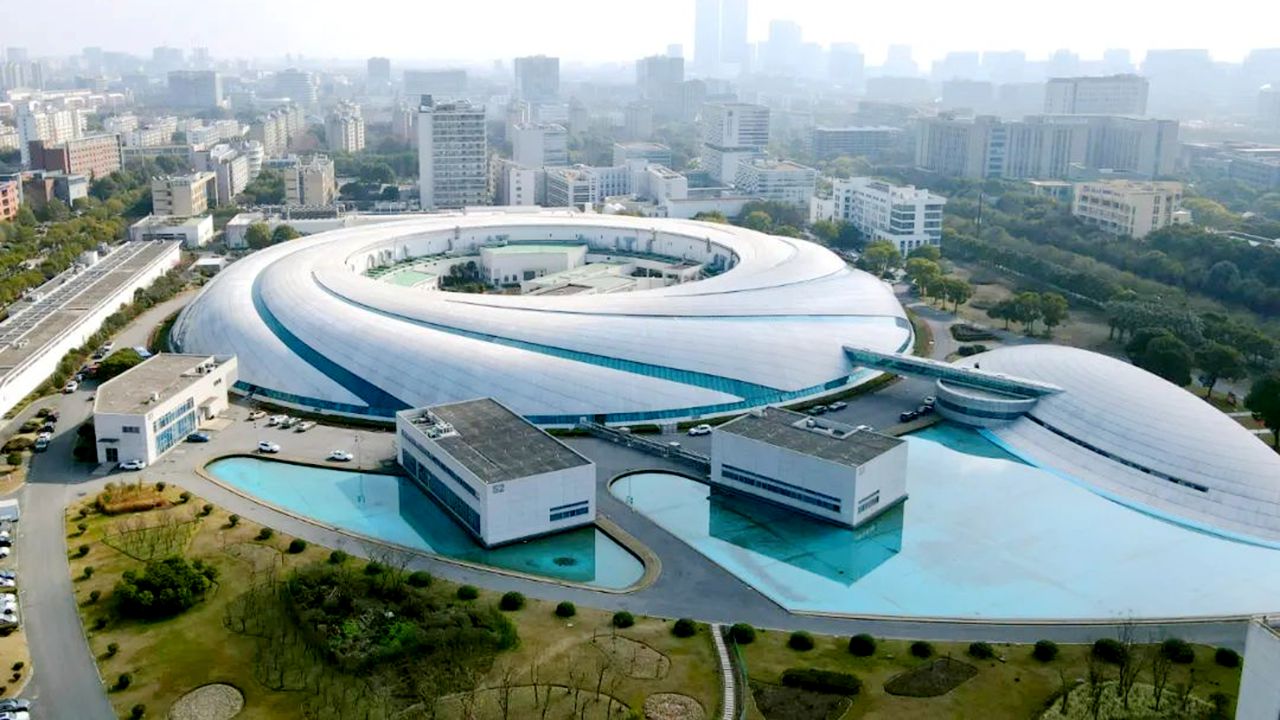Shanghai overtakes NY in global science rankings
Writer: | Editor: Zhang Zhiqing | From: Shenzhen Daily | Updated: 2024-11-28
For the first time, Shanghai has surpassed New York to take the second spot among global science cities, South China Morning Post quoted the latest Nature Index Science Cities supplement as saying today.
Shanghai’s advancement has been driven by strengths in biopharmaceutical research, advanced materials, artificial intelligence and reflects China's shift toward innovation, supported by initiatives like “Made in China 2025,” the report suggested.

A drone photo captures the Shanghai Synchrotron Radiation Facility (SSRF) in Zhangjiang Science City, Shanghai. The Shanghai Zhangjiang Comprehensive National Science Center has teamed up with the Hefei Comprehensive National Science Center in Anhui to implement the "Two Hearts, Same Creation" initiative, aimed at fostering a collaborative innovation community. The partnership between the Hefei Advanced Light Facility (HALF) and SSRF is a prime example of this ambitious effort in action. Photos from Xinhua
Beijing continues to lead the rankings for the eighth consecutive year, with half of the top 20 cities now in China, according to the report.
Simon Baker, chief editor of the report, said that China's research output in the journals tracked by the Nature Index is growing substantially, “demonstrated by Beijing extending its lead at the summit of the science cities ranking to almost double the share of the second-placed city.”
“The fact that this second place is now taken by Shanghai, pushing New York into third, only reinforces this trajectory,” Baker said.
Launched in 2017, the Nature Index Science Cities rankings assess cities based on their contributions to high-quality natural science journals. In 2017, Shanghai was ranked seventh, trailing behind several major cities such as Beijing, New York, Boston, San Francisco, Baltimore-Washington and Tokyo.
Shanghai’s current position highlights the commitment of China’s central and local governments to establish the city as a global innovation hub through increased research funding and talent collaboration, according to Nature.
Shanghai hosts numerous prestigious universities and research institutes, such as Shanghai Jiao Tong University and Fudan University, fostering strong academia-industry connections. The Zhangjiang Science City is a prominent biotechnology hub in the area.

A woman walks past the entrance to Purple Mountain Laboratories in Nanjing, Jiangsu Province. Established in 2018, Purple Mountain Laboratories is a key scientific and technological innovation platform jointly supported by Jiangsu Province and Nanjing City, specializing in fundamental and cutting-edge research on future networks and cybersecurity.
The report also notes the emergence of lesser-known provincial capitals like Nanjing (5th), Wuhan (9th), and Hefei (15th) as growing research powerhouses, indicating success in China's strategy to decentralize scientific development. While U.S. cities like Boston remain strong in biological sciences, but the gap is closing.
Baker suggests that within a decade, leading science cities in biological sciences may shift toward China, rivaling established hubs in the U.S. and U.K.